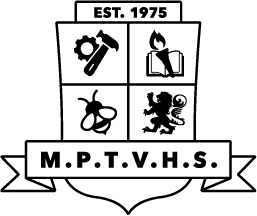Technical High Schools can help Boston’s Health Worker Shortage
By Kevin McCaskill
June 4, 2020–Health care facilities across the nation have been scrambling to meet the unprecedented staffing needs posed by the Covid-19 global pandemic. Job postings for health care professionals are up. Doctors are being called out of retirement. Nursing students are graduating early. Without a doubt, these are critically important stopgap measures to get us through the pandemic. But they fail to address the fundamental problem: America’s health care worker shortage. You see, while the coronavirus has shined a spotlight on the need for more qualified health care professionals, these shortages aren’t new, and they aren’t going away when our state recovers from the pandemic.
According to global health care staffing agency Mercer, the U.S. will need to hire 2.3 million new healthcare workers by 2025 to adequately care for the nation’s aging population. But according to the Bureau of Labor Statistics, the healthcare industry is only expected to add 1.9 million jobs. This persistent shortage of skilled workers — from nurses to physicians to lab technicians — means hundreds of thousands of positions will go unfilled. The factors contributing to the looming crisis are twofold: an aging population in need of more and greater care and a retiring generation of Baby Boomer nurses and caregivers. And despite having many of the nation’s finest, most sought-after hospitals, the Bay State isn’t exempt from the challenge. The Census Bureau estimates that more than 25 percent of Massachusetts’s population will be 60 and older by the year 2030. This demographic shift will place further on an already taxed system. Clearly, we need real strategies to build the pipeline of qualified medical professionals. And that starts with providing students access to the right real-life skills and training. At Madison Park Technical Vocational High School, we’re taking an innovative approach to tackling this looming health care crisis, and creating great, well-paying career opportunities in the process.
It all starts with our industry-leading partnerships with the city’s major health care providers. Through our partnership with Boston Medical Center, for instance, our students have the opportunity to get out of the classroom and into the operating room. Every week, they’re able to work side by side with x-ray technicians and nursing assistants, and gain hands-on training in clinical assistant and support services roles.
By having this direct relationship with industry leaders, we’re able to understand the needs of employers, and train students accordingly. When the academic year is over, they graduate with the skills, qualifications, and relationships necessary to secure full-time positions. So far, the partnership between Boston Medical Center and Madison Park appears to be a success. The hospital has a pipeline of talented and dedicated staff to fill its most in-demand positions, and they’re already trained on day one.
For our students, this crucial training opens the door to opportunity and stability, and provides a solid, middle-class career path in an industry where the average starting salary is $50,000.
It also gives them an opportunity to be frontline first responders, providing critical care to Boston residents. The approach is endorsed by the Massachusetts Board of Higher Education, which has long recognized the State’s looming health care staffing shortage, and has advocated for growing the pipeline through innovative partnerships, including with career vocational and technical education (CVTE). Even after Boston’s health care systems and hospital administrators tackle the immense staffing challenges posed by COVID-19, they’ll still be left with a persistent shortage if they don’t build the partnership and pipelines necessary to fill the gap. Fortunately, the region’s vocational schools have a record of success and are eager to answer the call.
Kevin McCaskill is the executive director of Madison Park Technical Vocational High School.
